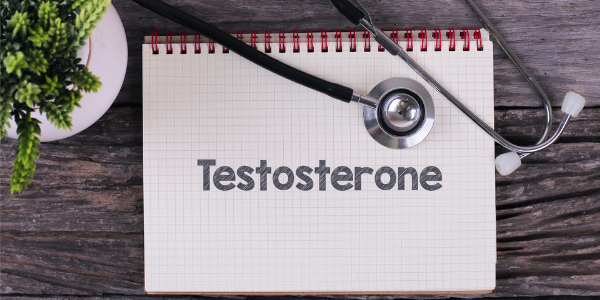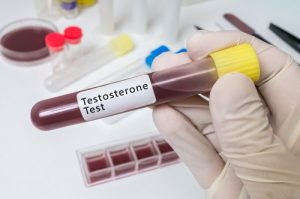Many women want to know about testosterone’s role during menopause. Studies have shown it can help with many of the most upsetting symptoms and more.
It is common to believe testosterone is only a male hormone. Women must know that it is also an important sex hormone for them. Its level changes during menopause. Testosterone in women declines as they get older. Women need to learn about the importance of testosterone’s role during menopause.
Importance
Testosterone has often been called the arousal hormone. It contributes to women’s sexual arousal, libido as well as orgasm. Testosterone also is part of the important metabolic functions associated with bone and muscle strength, cognitive ability, mood and more.
Androgen
Testosterone is part of a group of hormones referred to as androgens. Excessive amounts of this type of hormone will result in some women developing male reproductive characteristics as well as male traits. Women produce progesterone and estrogen sex hormones as well as testosterone. All of these are essential to a woman’s well-being.
 Testosterone’s Role During Menopause
Testosterone’s Role During Menopause
Androgens in women are produced in their fat cells, ovaries as well as adrenal glands. A woman’s body produces about a tenth of the level of testosterone found in a man’s body. When a woman is dealing with menopause, her levels of progesterone and estrogen will decrease significantly. Her levels of testosterone will decrease gradually as she ages. It is common for women to not notice any symptoms as their testosterone decreases. Some are more sensitive. They may experience impaired concentration and focus. A woman could experience low energy, lack of sexual desire as well as low mood.
Testosterone Deficiency
The major cause for women to experience testosterone deficiency is due to surgical menopause. It is possible for a woman to have her ovaries removed. This is done for a variety of reasons such as an ovarian cyst, routine hysterectomy and more. When this is done, it causes a sudden decrease in testosterone and results in the onset of certain symptoms such as:
- Depression
- Decreased sexual pleasure
- Low energy
- Lower sensitivity of genital tissue and the breasts
- Lower libido
- Lower orgasmic response
Medical Help
If a woman has experienced any of the symptoms associated with testosterone deficiency for an extended time, and it has been causing them personal distress, they should speak with their primary care physician or gynecologist. If necessary, they may refer the woman to a medical practitioner who specializes in female sexual functioning.
Testosterone Replacement
Testosterone replacement is something available to women in various forms. Androgen-estrogen combinations can be taken orally. There are compounded testosterone creams as well as injectable and implantable forms. It is important to be careful with testosterone replacement. There is no actual metric physicians can use to accurately determine if a woman’s testosterone levels are too low.
 Testosterone Therapy
Testosterone Therapy
A study by Global Consensus was published in 2019 on the use of testosterone therapy for women. Initially, testosterone therapy was only used for postmenopausal women who had a condition known as hypoactive sexual desire disorder (HSDD). This is when a woman has a constant lack of sexual desire. It is a determination made after all other factors such as relationships, vaginal changes, low mood and more have been eliminated. Research shows that hormone replacement therapy (HRT) is not a quick fix for issues involving sexual desire. It has been determined that testosterone can be considered for women who have HSDD and other issues. Physicians have stated the majority of women who have HRT feel it makes a difference for them.
Side Effects
Like taking any type of medication, HRT can have side effects. There are cases of women participating in HRT and developing hair growth on their bodies. This often occurs where a testosterone gel has been applied. Women have experienced a deepening of their voice as well as male-pattern baldness, and more. It’s important for women to realize it is essential for them to have just the right amount of testosterone and avoid having too much.
It is crucial for women to only consider starting HRT with an expert. When the right amounts are given in the correct circumstances, it can improve the quality of a woman’s life. Testosterone should be provided to women in the lowest possible doses for the shortest amount of time. The effects of it need to be closely monitored. It also needs to be determined if the HRT is meeting treatment goals. Researchers state testosterone’s role during menopause continues to be the subject of many ongoing studies.

 Testosterone’s Role During Menopause
Testosterone’s Role During Menopause Testosterone Therapy
Testosterone Therapy



